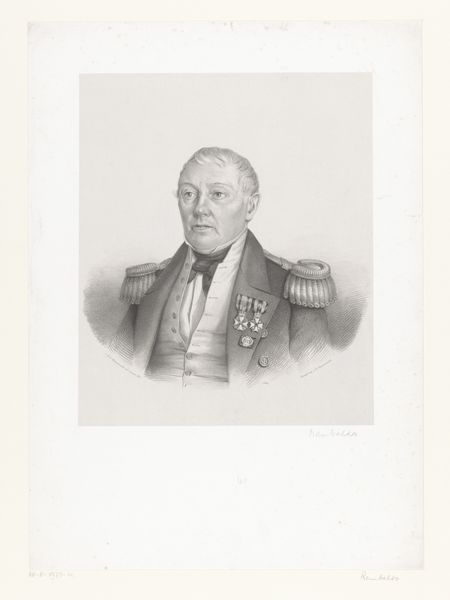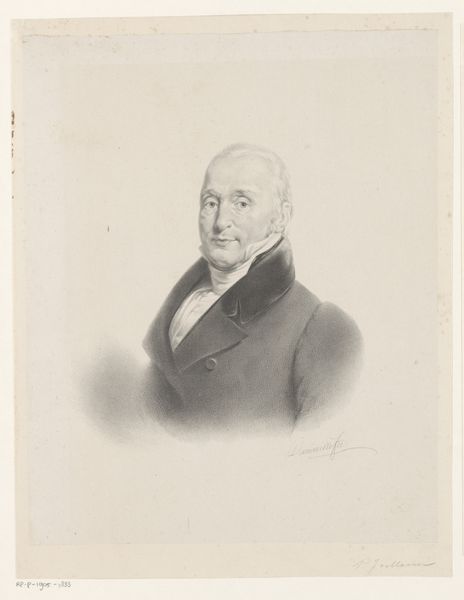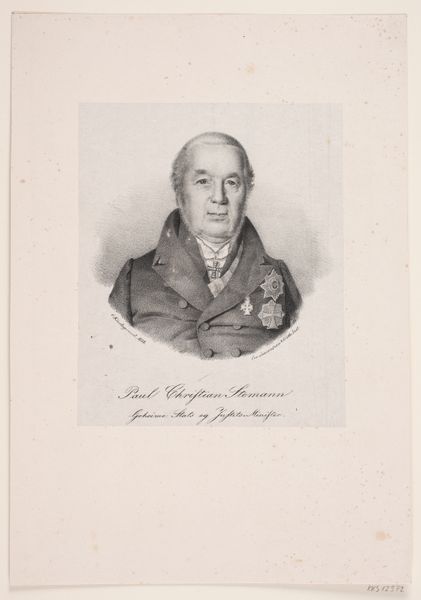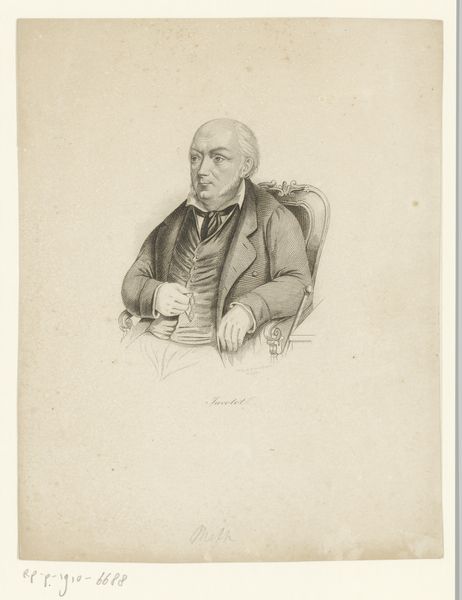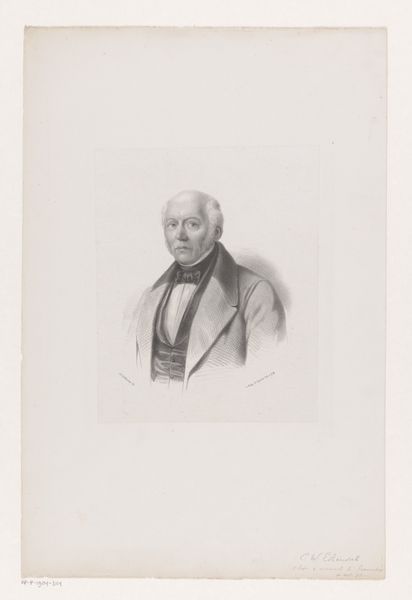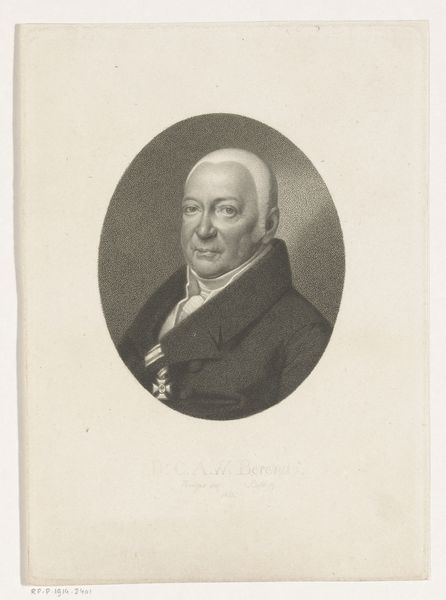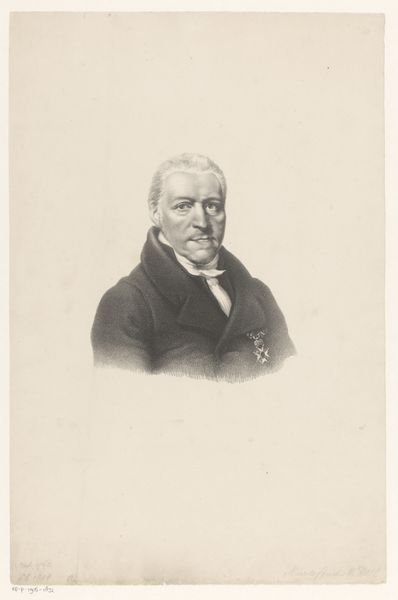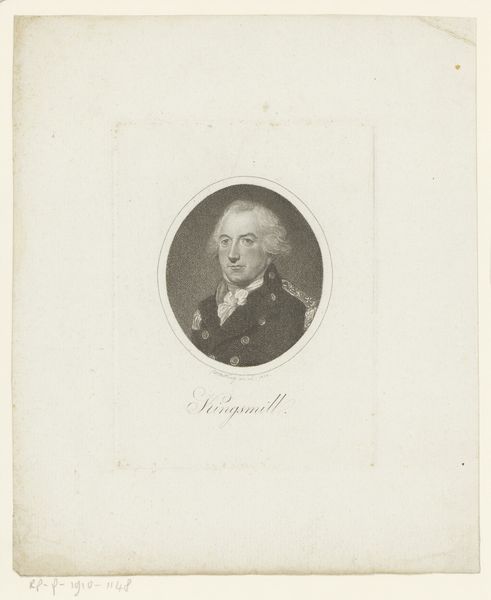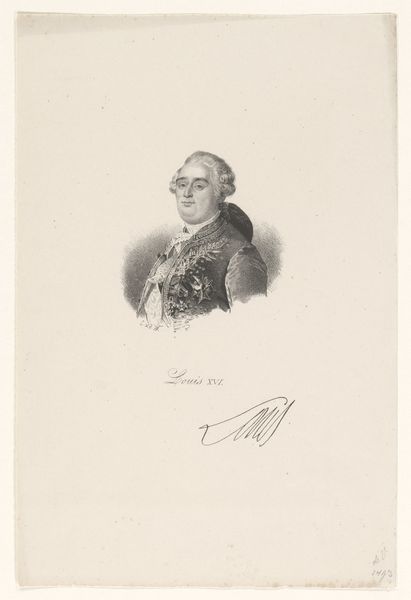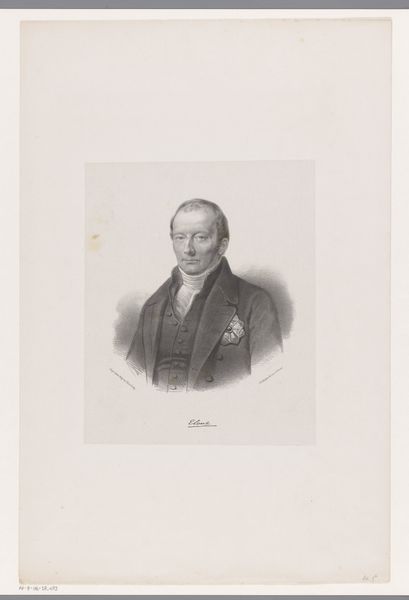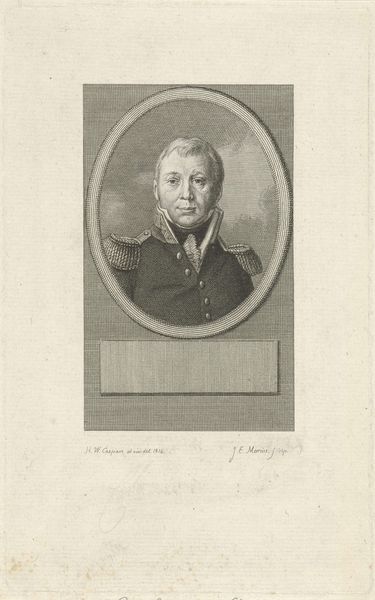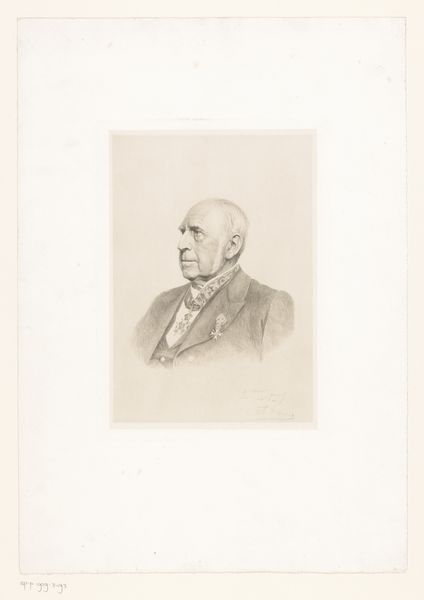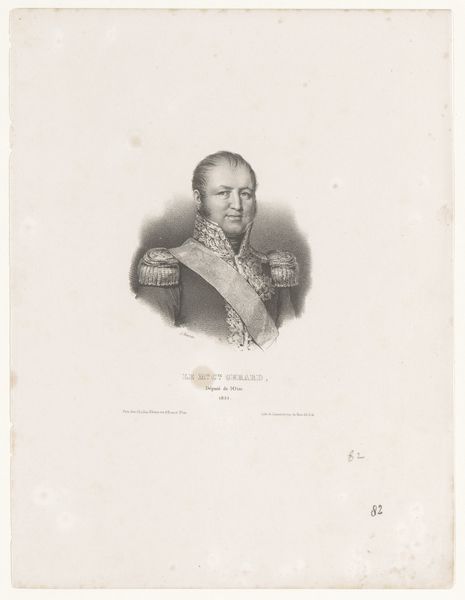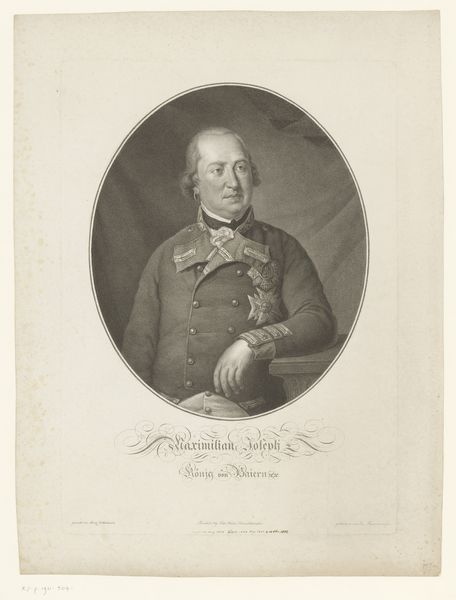
drawing, pencil
#
portrait
#
pencil drawn
#
drawing
#
16_19th-century
#
pencil sketch
#
pencil
#
academic-art
#
realism
Dimensions: height 479 mm, width 336 mm
Copyright: Rijks Museum: Open Domain
Editor: So, this is Christian Heinrich Gottlieb Steuerwald’s "Portret van J. Rambaldo" from 1851. It’s a pencil drawing, and what strikes me is how…stern the subject looks. Almost severe. What do you make of it? Curator: The severity you perceive could reflect more than just Rambaldo's personal demeanor. Portraiture of this era often functioned as a display of social standing and adherence to societal expectations, especially for men in positions of authority. Considering Rambaldo likely held a position of power – note the uniform and medals – how might the portrait contribute to, or perhaps even challenge, notions of masculinity and leadership prevalent in 19th-century Europe? Editor: That's a great point. It’s not just a neutral image. I suppose it *is* performing a kind of… power. The sharp lines and the detail put into his decorations become almost aggressive. Did this artist make other portraits of military or political figures? Curator: Understanding Steuerwald's broader artistic practice can give us insight into the political undercurrents influencing his work. Realism in portraiture wasn't merely about capturing likeness; it was about constructing an image of authority that aligned with specific power structures. Consider how factors such as class, gender, and national identity influenced who got to be portrayed, and how. Does this change how you look at this image? Editor: Definitely. It's not just about one man's face; it’s a statement about societal values and the artist’s place in reinforcing—or questioning—them. Thanks! Curator: Indeed! It’s through this intersectional lens that we can truly begin to unravel the complex narratives embedded within seemingly simple artworks.
Comments
No comments
Be the first to comment and join the conversation on the ultimate creative platform.
